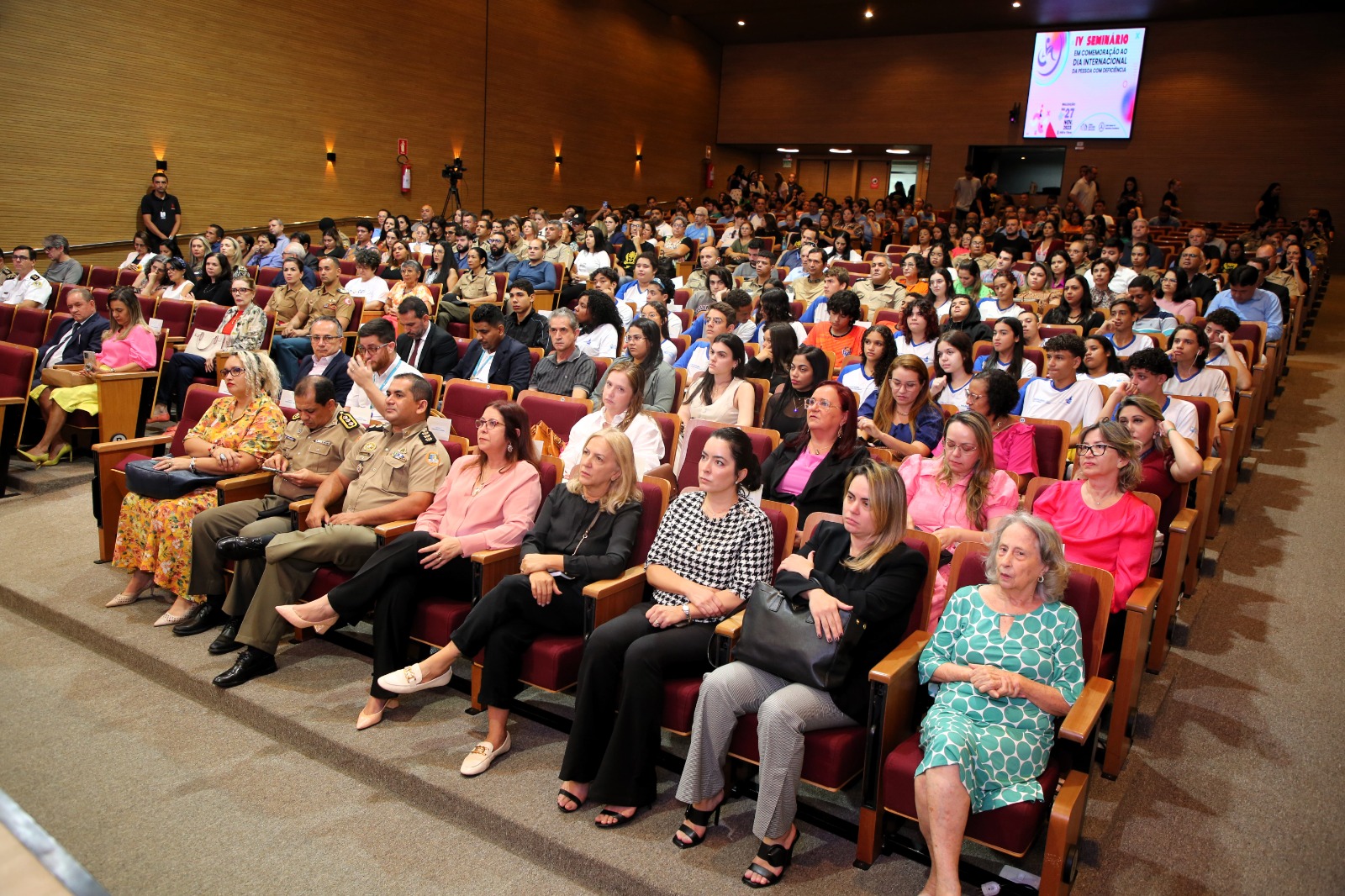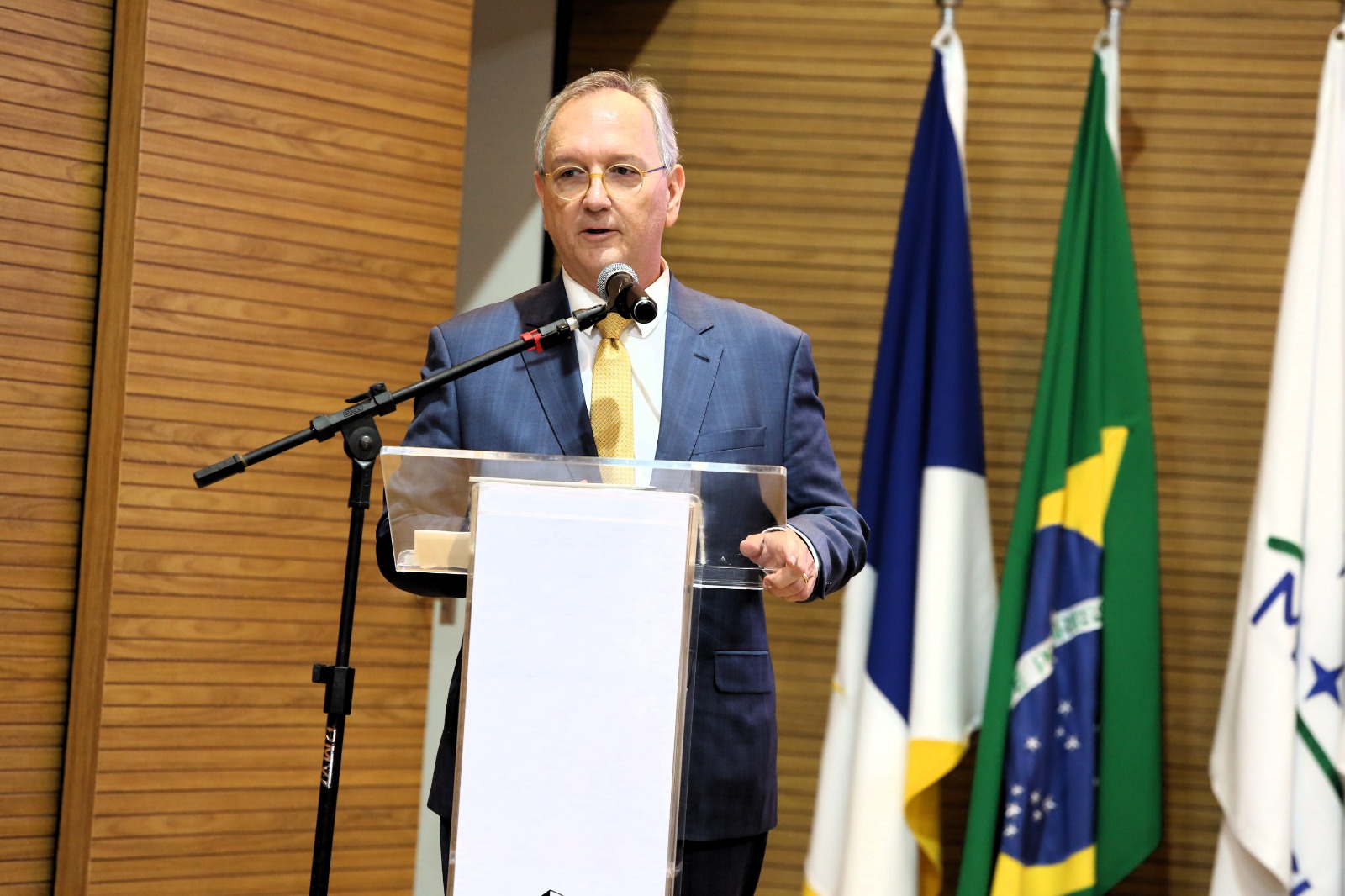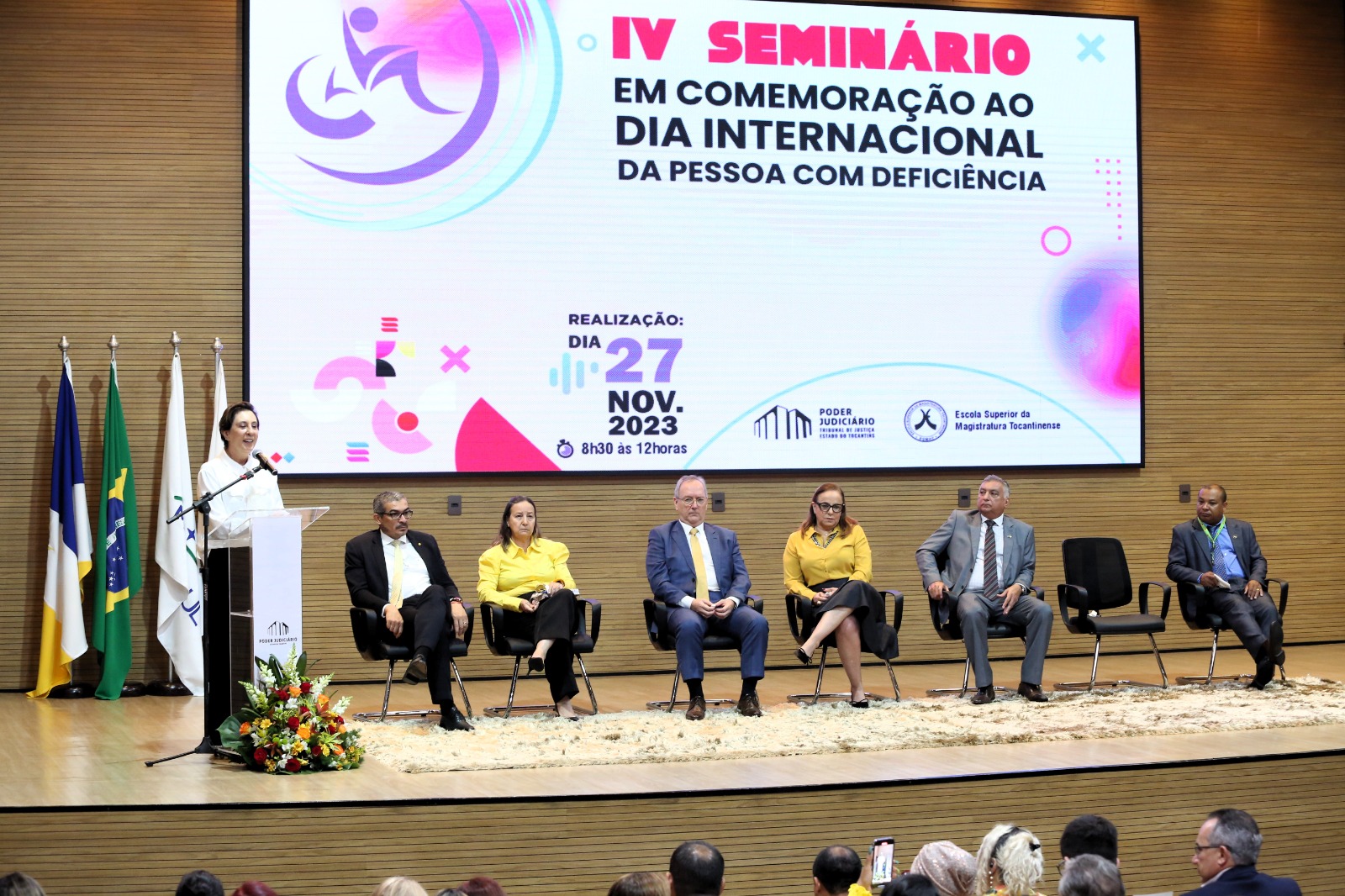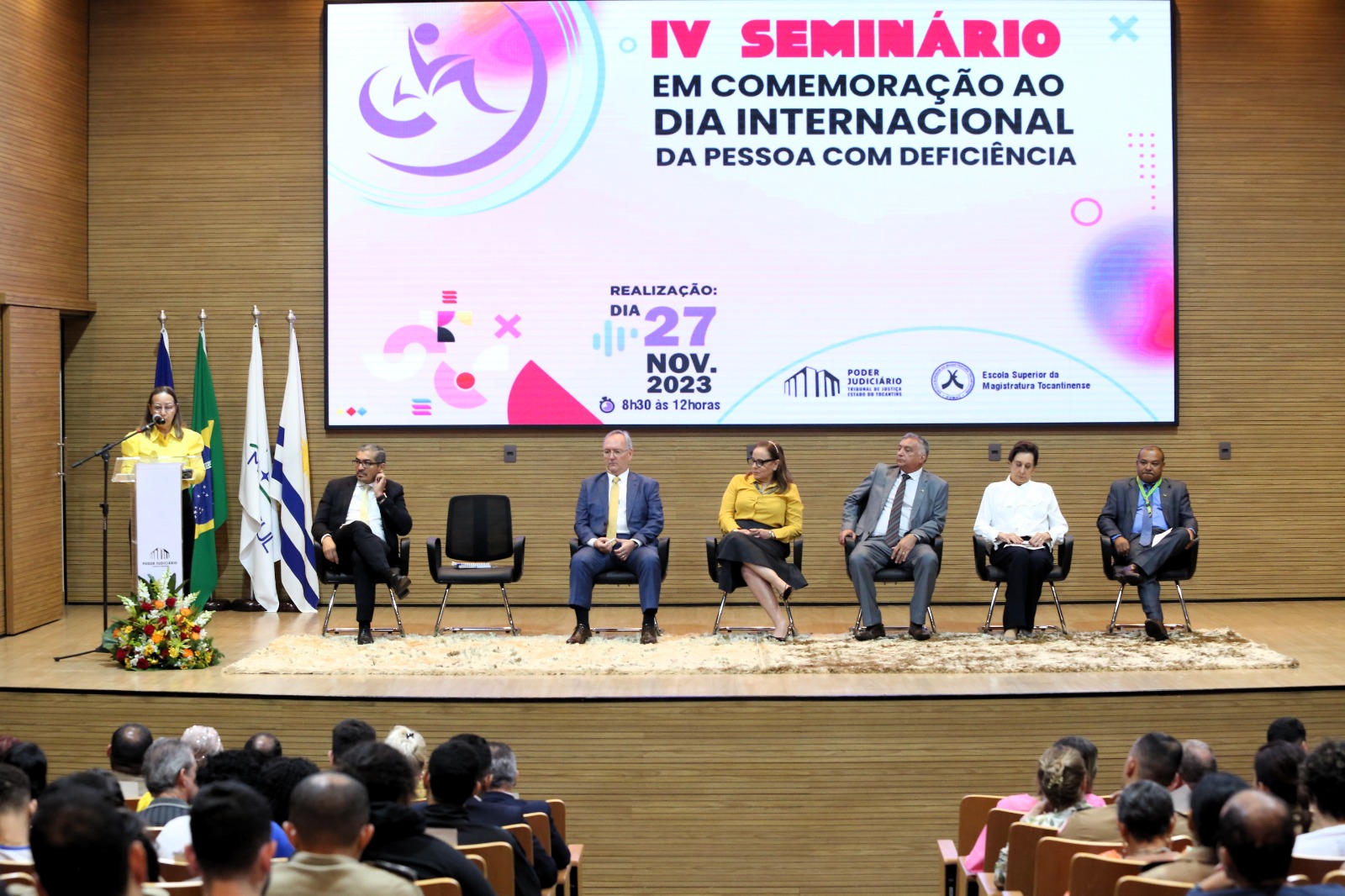
Alluding to the International Day of People with Disabilities - celebrated on December 3rd - the auditorium of the Court of Justice of the State of Tocantins (TJTO) was attended by authorities, specialists and the community interested in issues related to the inclusion and empowerment of people with disabilities.
The fourth edition of the Seminar once again proved to be an important activity in raising awareness in the society of the State of Tocantins and encouraging the adoption of inclusive, technological and architectural practices in several areas of social, educational and professional life for people with disabilities.
Opening
During the opening ceremony, Justice Pedro Nelson de Miranda Coutinho - president of the Permanent Commission for Accessibility and Inclusion of the Judiciary of the State of Tocantins and coordinator of the event - highlighted the actions developed by the Judiciary of the State of Tocantins with regard to the training of civil servers and magistrates on aspects related to more humanized care for people with neurodiversities.
"We need to understand that welcoming all types of diversity is an important act in guaranteeing the full right of citizenship to any person worthy of respect. We have held courses aimed at training civil servers to develop skills in their work environment and protocols for more humanized care for people with neurodiversity on the premises of the Judiciary, since they are often not apparent," she said.

Justice Maysa Vendramini Rosal, the General Chief of Justice, was also present and pointed out the commitment and partnership of the Internal Affairs Department in the development of inclusive policies and practices.
"This is an important initiative by the Judiciary, which aims to comply with the Resolution 401 of the National Council of Justice. It's a moving theme because it reminds us of awareness, of the constant quest to advance accessibility and inclusion, highlighting the importance of equal opportunities for all people, a symbol of respect, citizenship and dignity for the human person. The Internal Affairs Department is a partner in this initiative and it is here today joining forces so that every day any discrimination in this sense is removed from the judicial environment," she said.

For Justice Ângela Prudente, vice-president of the TJTO, the seminar "is a significant moment to reinforce the commitment of the Judiciary to inclusive policies and practices. This morning, we are highlighting accessibility as a fundamental and inherent right of people with disabilities or reduced mobility to live independently and exercise their rights to full citizenship and social participation. The reflection proposed today encourages us to question stereotypes, overcome architectural barriers and promote actions that make inclusion a rule and not an exception in our society."

Present at the panel of honor were Dr. Deusiano Pereira de Amorim, Secretary of State for Citizenship and Justice, representing Governor Wanderlei Barbosa; Public Defender Neuton Jardim dos Santos, coordinator of the Applied Center for Minorities and Collective Actions (NUAMAC, in the city of Palmas), representing the State Prosecution of the State of Tocantins; and State Counselor Domingos Rodrigues da Silva, representing the Brazilian Bar Association - Tocantins Section.
Lectures
Developed by Dr. Hugo Frota Magalhães Porto Neto, a Public Prosecutor from the State Prosecution of the State of Ceará, the first lecture, entitled Accessibility as a fundamental right of people with disabilities and technologies: smart cities and an infoinclusive society, covered some examples of digital inclusion initiatives for people with disabilities, as well as pointing out the benefits of an infoinclusive society for everyone.
Coordinating the panel, lawyer Diamisblan Sopran moved the audience by thanking the speaker for his contributions to the cause: "It's an honor to be mediating this lecture on people with disabilities. Only those who actually live through it know what it's like to be disabled. Everyone is complacent and helpful, but it's those who experience disability who can really tell you who they are and the difficulties they really face. (...) a diploma doesn't give you humanity, a diploma gives you pseudo-knowledge, but humanity, a sense of empathy, that's built up and I built that up with you [about the lecturer]".
Talking about Digital Inclusion and the Info-inclusive Society, Hugo said that "when we talk about inclusive education, we have to have the right tools so that that person, whether they have an individual educational project or a political-pedagogical project, can really develop their skills".
The second and final lecture was on architecture as a promoter of inclusion and the universality of spaces for all, with Architect Adriana Dias, who holds a master's degree and is coordinator of the Architecture course at the University Center of the city of Palmas (Ceulp/Ulbra). Coordinating the panel were the employees of TJTO Eva Portugal and Patrícia Idehara.
In her comments, Eva thanked the speaker and stressed the importance of the work of the architect in the lives of people with disabilities. "Thank you for those wonderful words, which shed light on the importance of the work of the architect in society, because as we work with accessibility, we work with lives on various levels, with their limitations, with their difficulties, and that changes many stories," she said.
Patrícia pointed to architecture as an instrument of social transformation and said that it always pays to invest in projects that have accessibility and inclusion. As well as being a basic safety issue, it is a requirement that anyone may need in the future, whether due to advancing age or a subsequent disability.
On the occasion, those present were shown the documentary on "Magical Abilities" about the families of people with neurodiversities and therapeutic practices.




